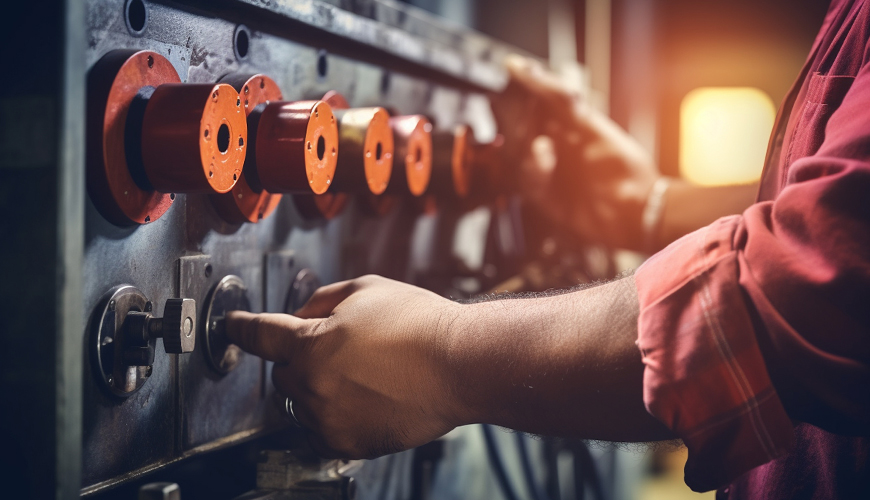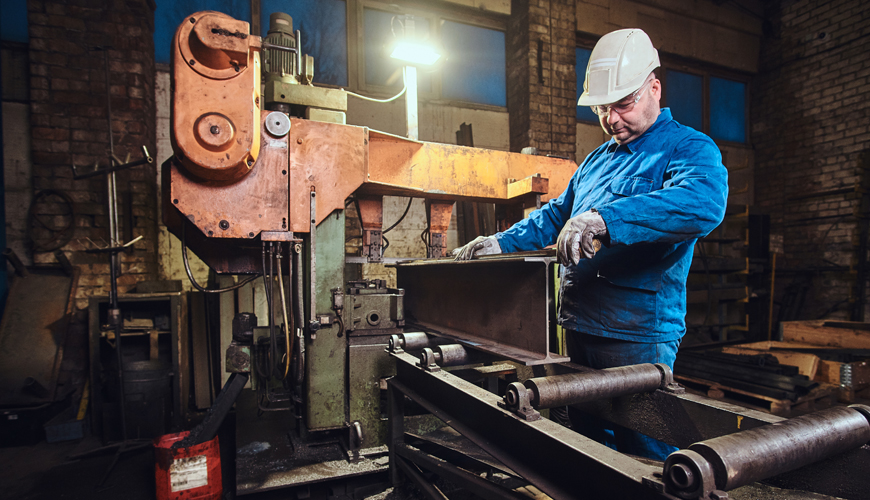Exploring Anchor Bolt Manufacturing: Materials, Processes, and Applications

Exploring Anchor Bolt Manufacturing: Materials, Processes, and Applications
Anchor bolts are critical fasteners used in construction and industrial applications to secure structures to concrete or masonry. This blog explores the intricate details of anchor bolt manufacturing, including the materials used, manufacturing processes, and diverse applications across industries.
Introduction to Anchor Bolts
Anchor bolts play a crucial role in construction and industrial projects by providing a secure connection between structural elements and concrete or masonry surfaces. They are designed to withstand various loads, including tension, shear, and combined forces, ensuring structural stability and safety. Anchor bolts come in various types, including wedge anchors, sleeve anchors, and expansion anchors, each tailored to specific installation requirements and load capacities.
Materials Used in Anchor Bolt Manufacturing
Steel Alloys
Steel alloys are the most common materials used in anchor bolt manufacturing due to their strength, durability, and cost-effectiveness:
(1) Steel Alloys
Grades such as ASTM A307 or A36 are widely used for general-purpose anchor bolts where strength and toughness are primary considerations.
(2) Alloy steels
Alloy additions like chromium, molybdenum, or nickel enhance strength, corrosion resistance, and temperature resistance, making them suitable for heavy-duty or high-temperature applications.
(3) Stainless steel
Grades such as 304 and 316 provide excellent corrosion resistance, crucial for outdoor or marine environments where exposure to moisture or chemicals is prevalent.
Other Materials
In specialized applications, anchor bolts may also be manufactured from:
(1) Titanium alloys
Lightweight with high strength-to-weight ratio, used in aerospace and high-performance structures where weight reduction is critical.
(2) Brass and bronze
Non-ferrous alloys offering corrosion resistance and aesthetic appeal, suitable for decorative applications or environments requiring non-magnetic properties.
Materials Used in Anchor Bolt Manufacturing
Cold Forming
Cold forming is a preferred manufacturing process for anchor bolts due to its efficiency and material savings:
(1) Cold heading
The process begins with cold heading, where steel wire or rod is cut to length and shaped under high-pressure dies to form the head and body of the anchor bolt.
(2) Thread rolling
After cold heading, thread rolling is used to form the threads on the bolt shaft without removing material, resulting in stronger and more precise threads compared to cutting threads.
Hot Forging
Hot forging is employed for manufacturing high-strength anchor bolts with enhanced mechanical properties:
(1) Heating
Steel billets are heated to high temperatures to improve malleability and reduce forging forces.
(2) Forging
The heated billets are then shaped under high-pressure dies to form the anchor bolts, which undergo plastic deformation to align the grain structure and enhance strength.
Machining and Finishing
After forming, anchor bolts undergo machining and finishing processes to meet specific dimensional and surface requirements:
(1) Machining
This includes operations such as cutting threads, drilling holes, and trimming excess material to achieve precise dimensions and fitment.
(2) Surface treatments
Surface coatings such as hot-dip galvanizing, epoxy coatings, or zinc plating are applied to enhance corrosion resistance and durability, extending the lifespan of anchor bolts in harsh environments.
Materials Used in Anchor Bolt Manufacturing
Anchor bolts are versatile fasteners used across various industries and applications:
Construction Sector
In construction, anchor bolts are essential for:
(1) Structural steel connections
Securing columns, beams, and trusses to concrete foundations, ensuring stability and structural integrity.
(2) Equipment anchoring
Anchoring heavy machinery, HVAC units, and equipment to concrete floors or pads to withstand operational vibrations and loads.
Construction Sector
In industrial settings, anchor bolts are crucial for:
(1) Heavy equipment anchoring
Securing large machinery, conveyor systems, and manufacturing equipment to concrete foundations for stability and safety during operation.
(2) Support structures
Anchoring support structures, platforms, and racks to concrete floors to optimize space and ensure structural stability.
Infrastructure and Utilities
Anchor bolts play a vital role in infrastructure projects, including:
(1) Bridges and highways
Anchoring bridge bearings, guardrails, and signposts to concrete supports to withstand traffic loads and environmental conditions.
(2) Utility installations
Securing utility poles, lighting fixtures, and telecom equipment to concrete foundations to ensure reliability and safety in public infrastructure.
Conclusion
Anchor bolts are indispensable components in construction and industrial applications, providing critical support and stability to structures and equipment. Understanding the materials used, manufacturing processes, and diverse applications of anchor bolts underscores their significance in ensuring safety, reliability, and longevity in infrastructure projects.
At Benz Auto Corporation, we prioritize high-quality anchor bolts tailored to meet the rigorous demands of construction and industrial applications. Contact us to learn more about our comprehensive range of anchor bolt solutions designed to enhance your project’s success and durability.



